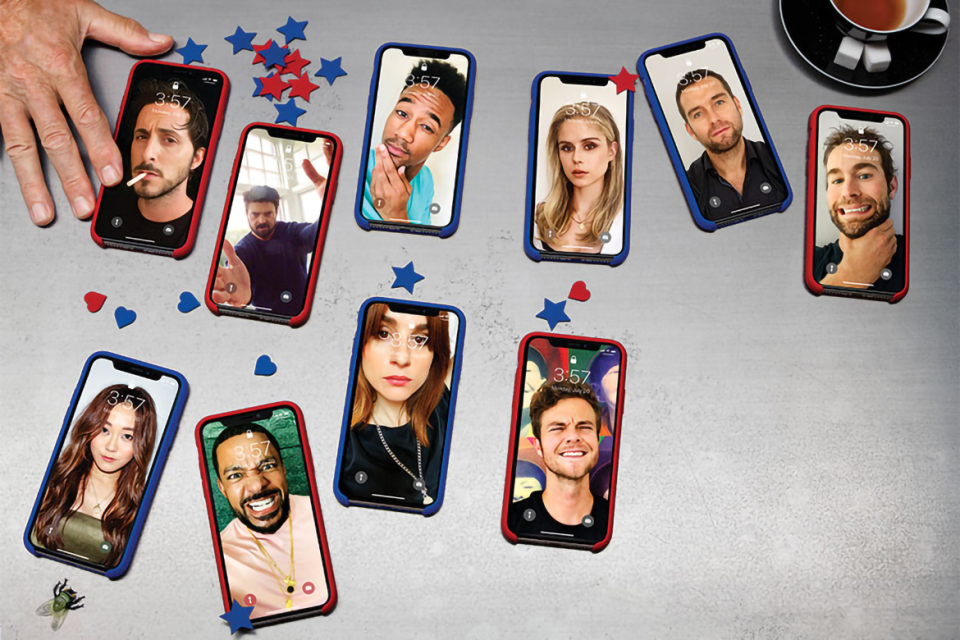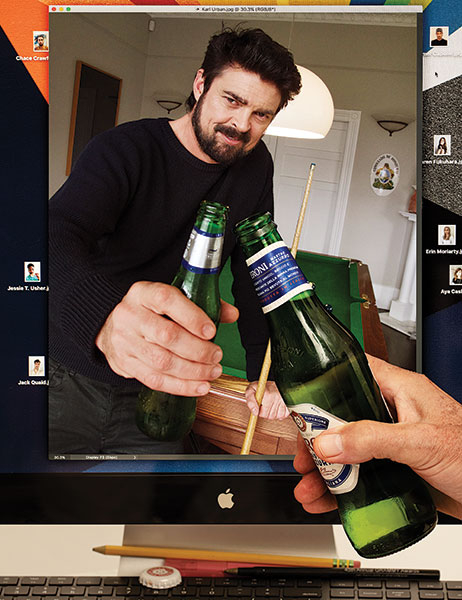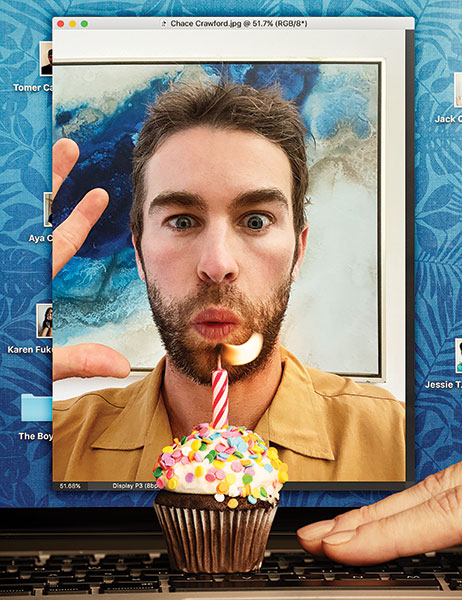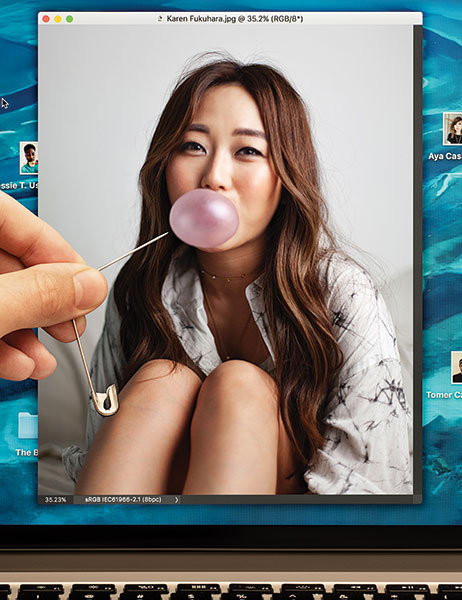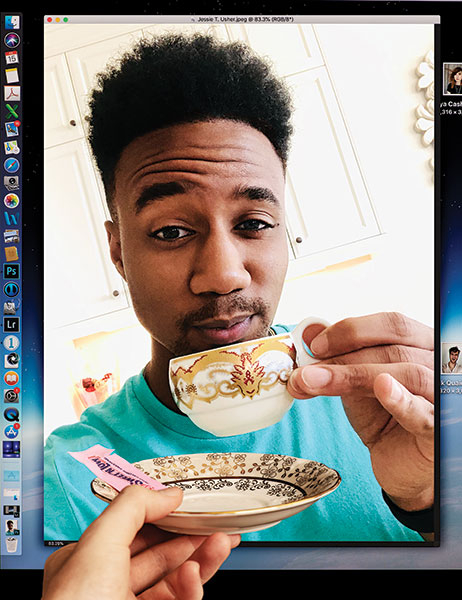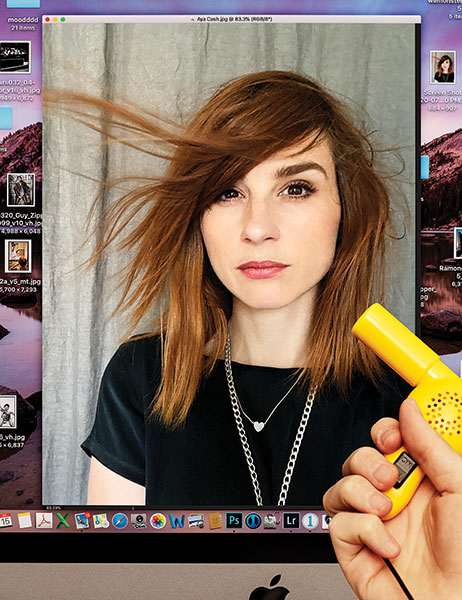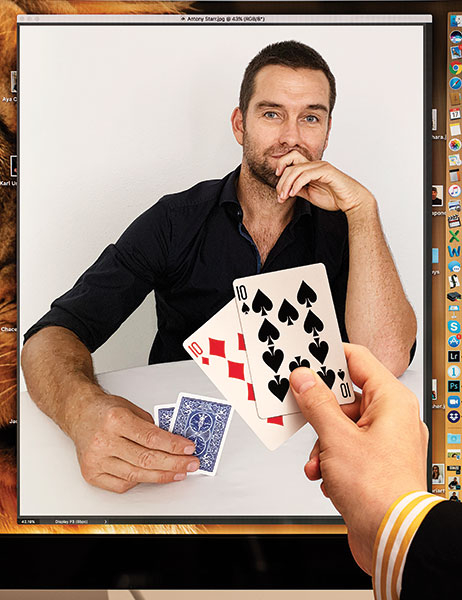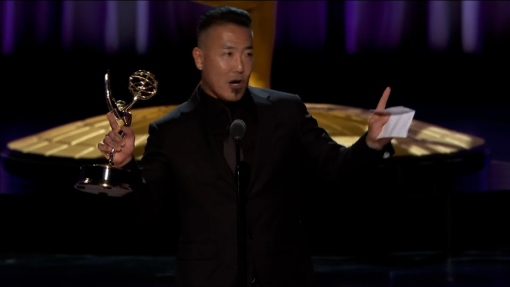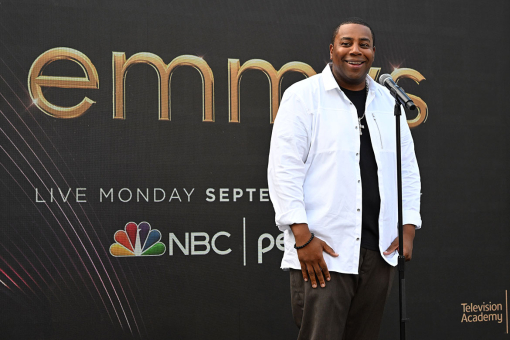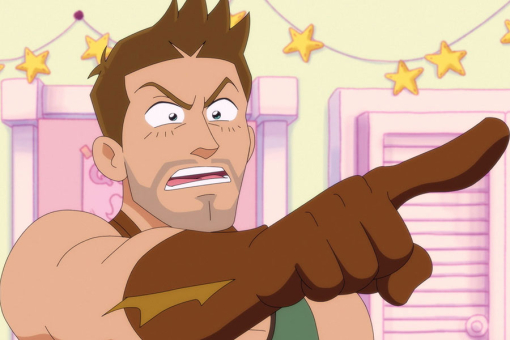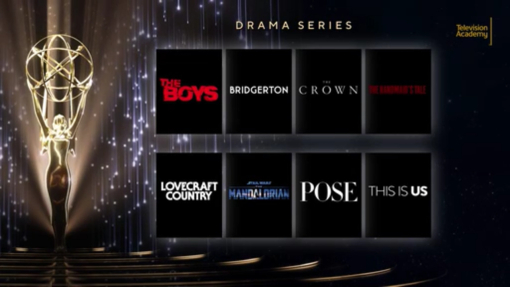Everywhere you turn, there's chaos — political shenanigans, corporate greed and self-dealing, celebrity bloviating and the steady thrum of drug addiction, human trafficking, racism and revelations of the #MeToo movement.
And that's just a regular day for the superheroes in the Amazon Prime Video series The Boys.
Oh, wait — you thought that was ripped from today's headlines?
While we may not have superheroes in our world who can fly, shoot lasers from their eyes, breathe underwater or run at lightning speeds (to name just a few of the "supe" skills in the show), we certainly have real-life chaos, and a twisted take on it has been fertile ground for the series, based on the 2006 graphic novel by Garth Ennis and Darick Robertson.
"I don't know whether [showrunner Eric] Kripke has some kind of time machine that gives him the ability to tap into the national and international zeitgeist, but it's uncanny," Karl Urban says.
He plays Billy Butcher, leader of a ragtag group of vigilantes working to bring down a crew of superheroes called the Seven, as well as their devious corporate overlords.
"This show is a wonderful forum to explore these issues a couple of steps removed from our reality, and in doing so, I think it makes them a little easier to digest."
To wit, audiences of mere mortals found the first season very easy to swallow — Amazon dubbed the series debut one of its most-watched ever, with Nielsen's SVOD Content Ratings noting that the first episode drew more than 6 million viewers in its first 10 days.
But season one, which ended before the pandemic hit, seems to have unfolded during a different lifetime.
Much like the rest of us, the characters in The Boys face dramatic changes (especially given the shocking reveal at the end of season one — spoilers ahead — in which Butcher learns that his wife, whom he'd thought dead, is not only alive but has a child with Homelander, the "Captain America"-esque leader of the Seven).
Both the show itself and those making it approached season two (dropping September 4) with the same gonzo spirit that fueled the first season.
For Kripke, creator of NBC's Revolution and Timeless and The CW's long-running Supernatural, that solid performance right out of the gate (the second season was announced before the series debut) was both a blessing and a curse.
"With season two, you inevitably start second- guessing yourself, like, 'Is this good? Is this maintaining the quality that we need this show to have?' I don't think I've ever been that scared heading into a second season."
Despite his fears, Kripke — also a writer, executive producer and director — decided to dive into season two headfirst. Homelander attempts fatherhood (it doesn't go well), The Deep (Chace Crawford) becomes involved with a Scientology-like religion, and a dead whale explodes (more on that later).
What's more, there's a new Big Bad named Stormfront — a saucy feminist superhero (Aya Cash of FXX's You're the Worst) who appears to have some disturbing beliefs about race.
"She is not necessarily what she first seems," Cash says. "I thought that was super interesting and exciting and also scary. I had a lot of discussions before I decided to go into the role, knowing that it was going to be an incredibly complicated one."
For Cash, the greater challenge was not slipping into a superhero costume ("That suit is filled with not me," she says, laughing. "I mean, those aren't mine, that isn't mine, it's all not mine. Nobody looks like that"), but verbalizing the character's hateful, racist dialogue.
"Yes, we're actors," she says, "but we're also two human beings looking each other in the eye, and there are at least three or four moments in the show where I said 'I'm sorry' so many times, because it feels horrible. Luckily everyone knows this isn't me, and there is a purpose to it."
Though Kripke took the racist male character of Stormfront from the graphic novel, turning him into a her wasn't initially the plan. "I was really interested in targeting nationalism and online extremism and how a really old and ugly idea is getting dressed in new social-media clothing," he explains.
"Secondarily, we knew that we wanted Homelander to be confronted with a woman who wasn't afraid of him and could go toe to toe with him. Someone said, 'Well, why don't we make them the same character?'"
Antony Starr, who plays Homelander, calls the relationship between the two competitive characters "really volatile."
"Homelander believes he's a singularity on Earth," Starr says, "and for anyone to come in and challenge that, well, that's when you take their head and squeeze it like a little grape. I don't want to give anything away, but sometimes it's as the song says — you can't always get what you want, but you get what you need."
In season one, Starlight (Erin Moriarty) went from being the Seven's "new kid" to working as a double agent against the supes' corporate overseer, Vought International. Whether she'll have such a positive takeaway from her time with Stormfront is less likely, Moriarty observes.
"They have a really interesting dynamic, because in the beginning, Starlight thinks that Stormfront is going to be a certain type of character and superhero that can perhaps be an ally. As the season progresses, that takes a full 180.
"Having to adjust her perception of Stormfront was interesting, but given how people betrayed [Starlight] in season one, I think by season two she almost expects it."
Starlight's primary betrayal came from Hughie Campbell (Jack Quaid), the former electronics salesman who kept his membership in Butcher's crew a secret while pursuing a romance with her. In season two, Hughie is guilt-ridden, angry and obsessed with Billy Joel songs.
"He's renegotiating his relationship to almost everything," Quaid says. "He feels terrible about lying to Starlight for so long, and he needed Butcher last season as a pseudo father/big brother, but he's grown. He doesn't need him anymore, but still wants his approval in certain ways."
As for Butcher, Urban says viewers will understand a little more of what makes him tick, especially since his primary motivation — avenging the "death" of wife Becca (Shantel VanSanten) — has shifted.
"There is a monster lurking within Butcher, and that is his father," Urban says. "You really come to understand the nature of that beast in season two. That season is really about humanizing Butcher."
If that sounds like a lot of thoughtful character development for a superhero show, that was always Kripke's intention. "I'd tell everyone, I don't want season two to be bigger. I want it to be deeper ," he says. "Obviously, we have huge set pieces and Amazon money, but this is the most introspective season yet."
Speaking of those huge set pieces, don't forget that exploding whale, a set piece so darkly funny Starr was "screaming with laughter" when he watched it.
Another cast member hopes the moment becomes, yes, part of the zeitgeist. "Instead of 'jump the shark,' the phrase needs to be changed to 'impale the whale,'" Quaid says, laughing. "Once you impale the whale, you can't go back. That's it. You're in that show now."
But as extreme as it may be for the Boys to drive a boat through a whale, the wildest plot twist may be the one presented by the Big Bad everyone faces — our current pandemic.
"I had this humorous and horrifying moment when I realized that what was happening in reality was too big for my superhero show," Kripke says.
"I thought for a minute about playing with a real-time, Covid season three, but it was impossible to manage from a purely creative standpoint. It's so big, and we're still so in the middle of it."
That said, look for current events to take a more oblique spin in season three. (The third-season pickup — and an aftershow, Prime Rewind: Inside The Boys, hosted by Aisha Tyler — were announced in late July.)
"I don't think it will be addressed overtly," Kripke muses. "We'll find the right metaphor. Think Homelander needing to be praised before every press conference. Just today we had one writer pitch the idea of the superheroes singing 'Imagine' to the public."
Though fans may be eager for a third season, how it actually comes about remains a question.
"I'm frankly at a loss about how to pull this off at this point," Kripke admits. "I'm not allowed to turn in subpar entertainment and say, 'Hey, grade me on a curve — it's the pandemic.' It's our job to make sure the audience never knows the difference."
Urban isn't worried. "Yes, the landscape is going to be different, but I think [producing season three is] entirely possible. It's about having the wherewithal to come up with solutions to the problem."
And he's sure fans will stick around, no matter what. "I have full confidence in the audience and full confidence in our show. We've delivered an incredible season two. In my opinion, it's bigger and better than season one."
Promoting the show without the real-life boost of conventions and red carpets is "a bummer," according to almost everyone involved, but they know they can handle it.
"I think every actor has bought a professional microphone at this point," Quaid says of the at-home must-haves.
Noting Hughie's knowledge of tech, he adds, "I was already a lot like Hughie, and then the pandemic forced me to be even more like him," adding that he has his own gaming podcast (Hero Club) and is setting up a channel on Twitch, Amazon's platform for watching live gaming. "I'm doing — we're all doing — what we can."
While Kripke is "unquestionably sad" that events like a real-life Comic-Con have been back-burnered, he doesn't believe the new limitations will affect viewership. "I get a lot of inspiration from panels and conventions, but at the end of the day, the show speaks for itself."
It can still speak for itself in a Comic-Con context: the event has gone to a virtual format. The Boys also took part in Amazon Virtual-Con, a content hub that in late July brought together all of the streamer's talent for Comic-Con attendees.
Starr believes this darkly funny show about messed-up superheroes may be exactly what we need in this miserable moment.
"It's difficult not to think about what people are losing and what people are going through," he says.
"Without getting too metaphysical, maybe this is the way it was meant to be — that in the middle of all this chaos and mayhem, a new show drops that people have started supporting and glomming onto.
"Something comes out that can be a little bit of distraction, a little bit of fun."
This article originally appeared in emmy magazine, Issue no. 9, 2020

